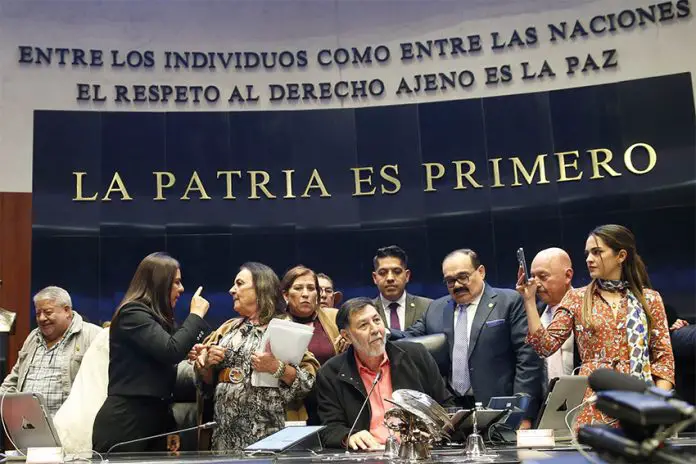President Claudia Sheinbaum on Thursday promulgated a constitutional reform that prevents legal challenges against constitutional amendments, such as Mexico’s recently enacted judicial reform.
The reform was promulgated via a decree published in the Official Gazette of the Federation (DOF) a day after the lower house of Congress approved the so-called “constitutional supremacy” bill.
A majority of Mexico’s 32 state legislatures promptly ratified the reform, allowing Sheinbaum to sign it into law in quick time.
The reform makes modifications to two articles of the Mexican Constitution.
Article 105 now states that constitutional challenges or “actions of unconstitutionality” that seek to dispute “additions or reforms to this Constitution” are “inadmissible.”
Article 107 now states that lawsuits “against additions or reforms” to the Constitution “will not proceed.”
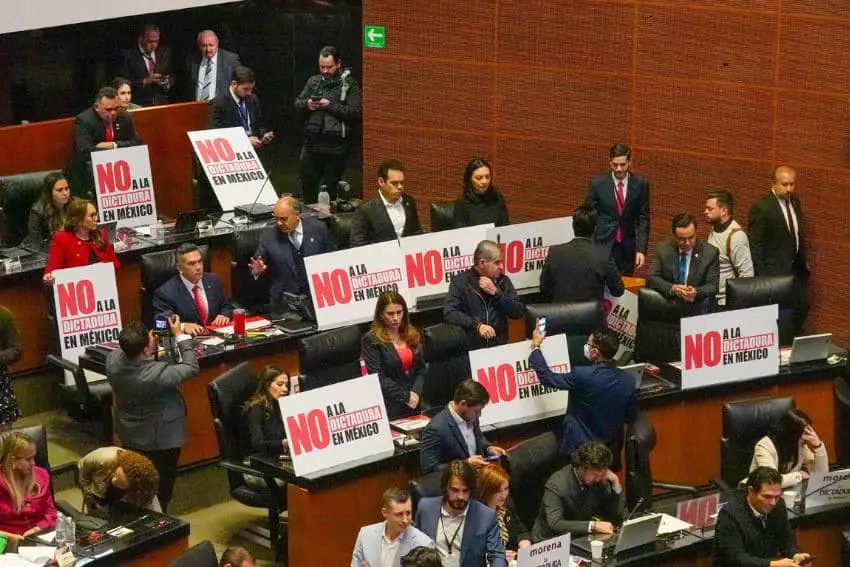
The decree published in the DOF also states that “matters that are in process must be resolved in accordance with the provisions contained in the present decree.”
The reform would appear to prevent Mexico’s Supreme Court (SCJN) from making a binding ruling on a proposal to strike down part of the judicial reform that was approved by Congress in September and signed into law by former president Andrés Manuel López Obrador two weeks before he left office.
Indeed, Morena took the reform proposal to Congress precisely to prevent the Supreme Court and other courts from handing down rulings against constitutional reforms.
Even though the reform has been approved and promulgated, heated debate over whether the SCJN has the right to hand down a binding ruling on the judicial reform and other constitutional reforms continues.
Under the proposal of Justice Juan Luis González Alcántara Carrancá — one of eight SCJN justices who submitted resignation letters to the Senate this week — only Supreme Court justices would be elected and all other judges would continue to be appointed.
The government is planning to hold elections in 2025 and 2027 at which Mexican citizens would directly elected thousands of local, state and federal judges. The National Action Party filed a lawsuit with the Supreme Court against the judicial reform that allows those elections to occur.
Despite the DOF decree stating that the “constitutional supremacy” reform applies to “matters that are in process,” Justice González asserted that justices can vote on his proposal next Tuesday as scheduled.
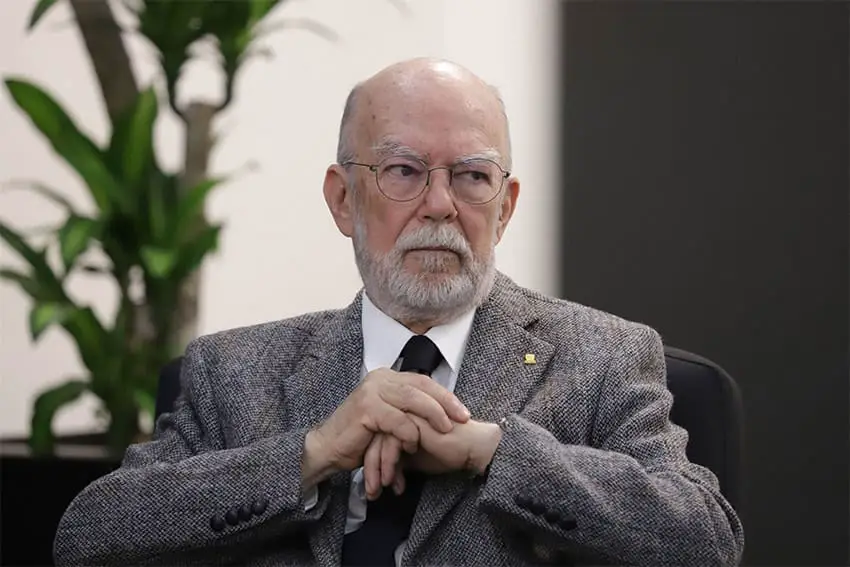
For her part, President Claudia Sheinbaum asserted this week that the Supreme Court doesn’t have the authority to legislate or to strike down a constitutional reform that “followed all the [legislative] processes that the constitution establishes.”
No judge can repeal a constitutional reform, says Morena leader
Speaking on Thursday afternoon, Morena’s leader in the lower house of Congress, Deputy Ricardo Monreal, asserted that no judge, magistrate or Supreme Court Justice can hand down a ruling against a reform that has been approved by the Congress and subsequently ratified by state legislatures and promulgated by the president.
“It’s not valid. They don’t have jurisdiction, they don’t have authority … to do that. … What we did [with the ‘constitutional supremacy’ reform] is reaffirm what the Constitution already says [regarding] the unchallengeable nature, the inadmissibility of recourses and actions against reforms and additions to the Constitution,” said Monreal, who has a doctorate in constitutional law.
The Morena party leader claimed that the “constitutional supremacy” reform is the “most profound” reform “in the 200 years of the life of the country.”
He also said that the legal principle of non-retroactivity “is not observable in the case of constitutional reforms.
Monreal’s view is that as the “constitutional supremacy” reform applies retroactively, the Supreme Court is prevented from handing down a binding ruling on the judicial reform given that that the matter is already “in process.”
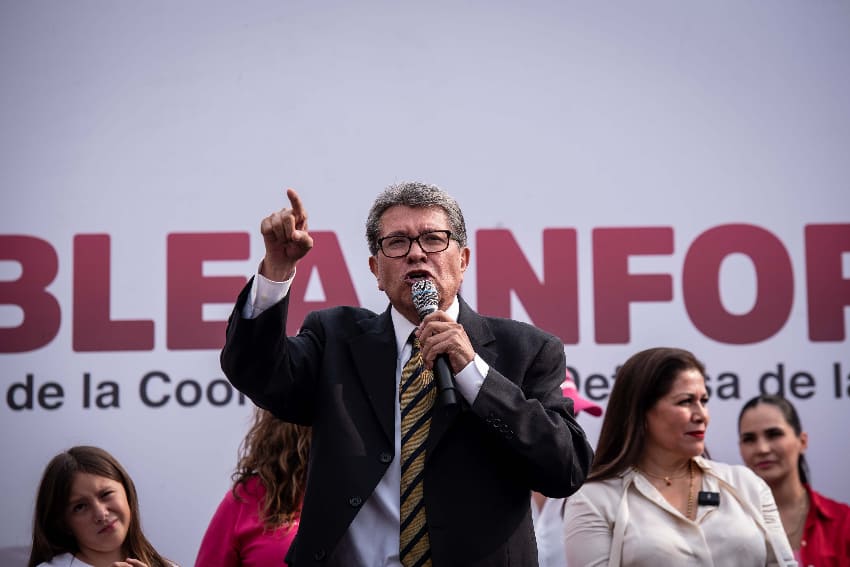
The Animal Político news website reported that in accordance with the “constitutional supremacy” reform, previous rulings against the judicial reform and “the project that Justice Juan Luis González Alcántara is proposing to declare unconstitutional the election by popular vote of judges and magistrates would have to be dismissed — that is to say suspended.”
On that point, González, and others, disagree.
González: ‘We will have a constitutional crisis’ if the government doesn’t comply with the SCJN’s ruling
During an interview with Grupo Fórmula on Friday, González was asked what would happen if the Supreme Court hands down a ruling against part of the judicial reform and the government refuses to comply with it.
“We will have a constitutional crisis and all Mexicans will have to absorb and suffer the consequences,” the justice said.
Eight of 11 justices would have to vote in favor of González’s proposal in order for the SCJN to hand down a ruling against the judicial reform provision allowing the direct election of virtually all Mexican judges. The eight justices who tendered their resignations this week to protest the government’s judicial overhaul remain on the court for now and appear likely to vote in favor of the proposal.
González said that non-compliance with a Supreme Court ruling against the judicial reform would relegate the rule of law in Mexico to “history books.”
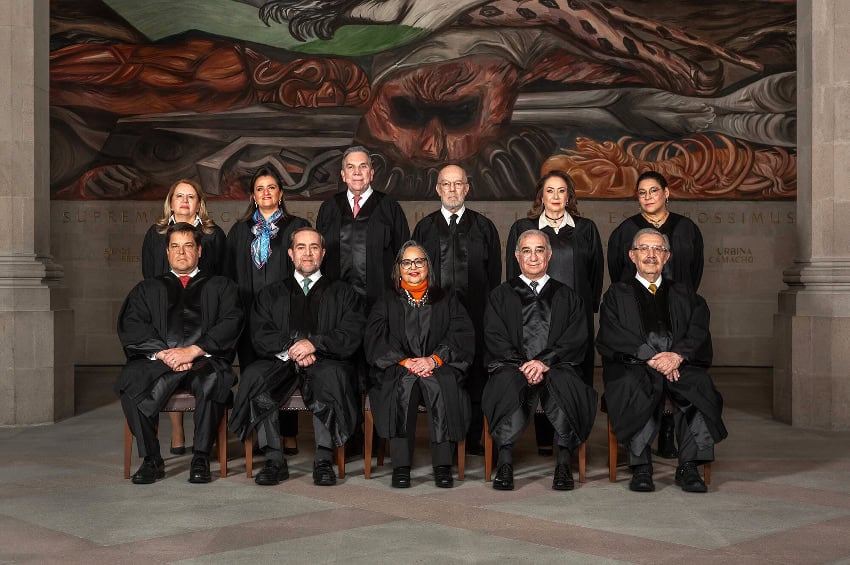
He characterized his proposal to only allow the election of Supreme Court justices as a political-legal solution to the uncertainty and division created by the judicial reform.
“I believe that the president will have to reflect [on what to do], she has these days to do that, these days that are so important for the people of Mexico,” González said, referring to the period before the 11 justices will consider and make a ruling on his proposal on Tuesday.
The justice said that Sheinbaum “will have to reflect on the damage” not complying with a SCJN ruling “would cause to the institutions” and “the credibility” of Mexico as a country that respects the rule of law.
In a separate interview on Thursday, González said that non-compliance by the government with an SCJN ruling would have an impact on foreign investment in Mexico and “our relations with trade partners with whom we’ve established a series of international treaties and bilateral agreements.”
“The lives of all people would be affected,” he added.
González is not alone in saying that Mexico could be headed for a constitutional crisis.
Among others who have made the same or similar remarks is former Mexican president Ernesto Zedillo. In an opinion article published in The Washington Post on Friday, he wrote that Sheinbaum is “advocating that the government ignore court rulings” and “fueling” a constitutional crisis.
Analyst: González is trying to throw a ‘lifeline’ to the government
During a panel discussion on a Mexican television program, analyst and writer Viri Ríos said that González is “trying to throw a lifeline to the governing coalition,” which includes Morena, the Labor Party and the Green Party.
“He’s proposing that the most difficult part [of the judicial reform] to implement, which would be the mass election of judges, … not be implemented,” she said.
La SCJN mandó un salvavidas 🛟 a Morena con el proyecto de Alcántara.
Pero es un salvavidas envenenado.
Acá comenté por qué: pic.twitter.com/9csDDWl7kS
— Viri Ríos (@Viri_Rios) October 31, 2024
Ríos said that there is an argument in favor of the government taking that “lifeline” because it would remove the problems of “instability in the markets” and the “constant fight” with Mexico’s judiciary.
However, she argued that the government shouldn’t take the lifeline González is attempting to offer because it is a “poisoned lifeline.”
To accept the lifeline, Ríos said, the government would have to accept that it is allowing the Supreme Court to “strike down constitutional reforms” — which various officials, including Sheinbaum, argue it doesn’t have the power to do.
“That’s what it’s about. I think that is very dangerous because this is basically putting democracy in the hands of 11 people and going from being a democratic electoral system to being a system that appears much more like a judicial aristocracy,” she said.
With reports from Reforma, Radio Fórmula, La Jornada, Milenio, El Financiero and Animal Político
